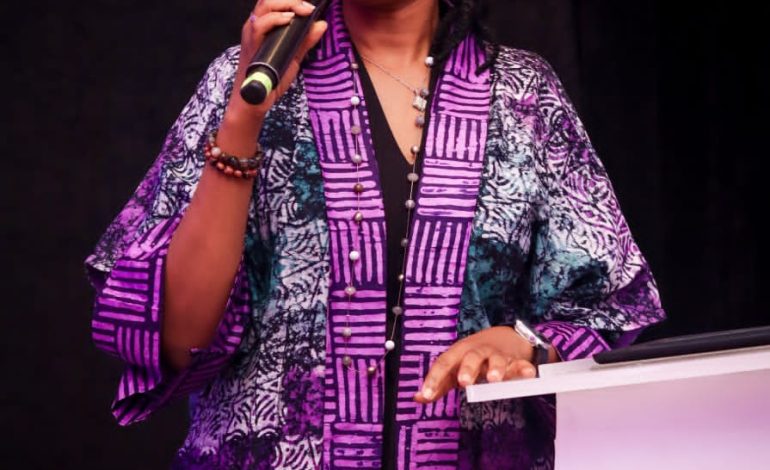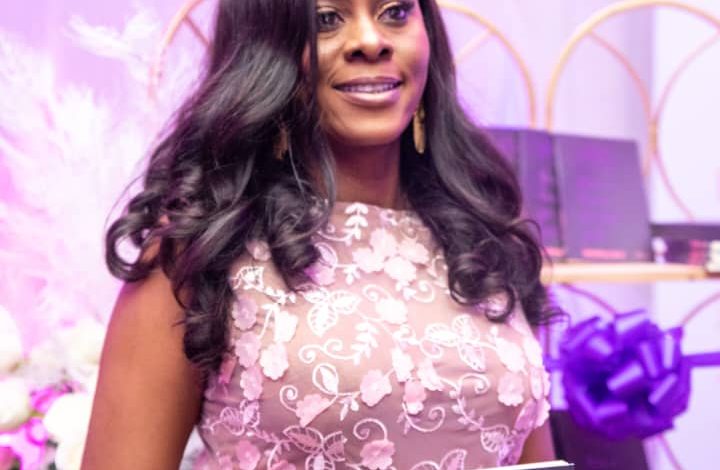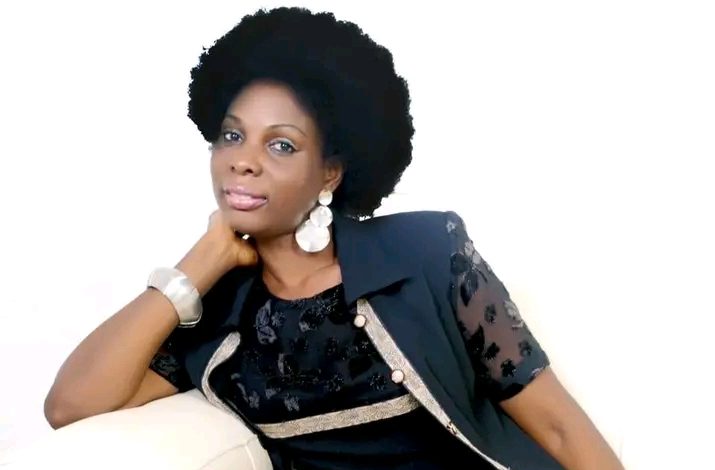We’re products of society that continues to pull us back, says gender expert, Funke Baruwa

* ‘Break those boxes of social construct and be who you can be’
THERE are a couple of stories in Adenrele Niyi’s book, There’s a Heaven for Bad Girls that gives the sense that, yes indeed, it is the right title. As women, as girls, we are boxed; we are structured by society. I always say that we are a product of socialization as women; we’re socialised as girls; we’re socialised as babies from when we were born. What do they say when a boy arrives – it’s a bouncing baby boy! But when it’s a girl, it’s a girl. There are some cultures when a cow or a goat is slaughtered when it’s a boy; if it’s a girl, it’s a chicken. So you‘re socialised to feel that your arrival is not as celebrated like the arrival of a boy. But times are changing, and I am on this stage today. I wouldn’t have been here 40, 50 years ago; I would be serving tea and not give the opening remarks. The first time I went to the National Assembly to defend my budget, a senator asked me to serve tea. They thought I’d come to serve tea, not to present a budget!
But times are changing, but we still have a lot of work to do. For many women who break barriers, for many women who try to do the right thing, and for many women, who try NOT to fit into the box that society has earmarked for us, we’re called ‘bad girls’. And that’s why I feel that the title of the book is very apt, because once you break the ranks and you don’t follow the status quo, you’re termed a bad girl. You’re a misnomer; you’re a rebel; you’re doing things against the force of nature or what is expected of you – as a baby girl, as a girl, as a teenager and as a woman. And until you die as a woman, society has certain structures that they expect you to fit into; certain lifestyles that they expect you to fit into. In fact, certain foods you’re expected to eat, careers you’re expected to follow; dresses or outfit you’re expected to wear; outfit you’re expected to fit into. There’s this funny one on WhatsApp recommending the dresses your daughters should wear in her lifetime. It’s one of the worst ones. I’m sure some of you have seen on WhatsApp the different dresses you’re expected to wear at different stages in your life, as a woman – when you’re born, graduation gown, wedding gown, etc. And these are social constructs, not necessarily written by men; this is not a man shaming thing. It’s socialisation that has happened to all of us, even as woman, as girls.
I believe that we are at a certain point in the world, as humans, where we need to make certain judgment calls regarding how we want to view women and how we want to accept that things have changed. Our acceptance or not of that fact about where women are right now will determine how quickly the world will grow and where the world will get to. We must learn to move with the times.
In writing this book, the author clearly shows to us the intersectionalities that exist when we live our lives as women, as girls, and the different hats that we wear at the different stages in our lives, and what we have to challenge ourselves to do or not do regardless of what society tells us. But it’s a difficult choice to make. It’s easy to talk about it on stage; it’s easy to motivate about it, but it’s easier said than done. But our ability to cross that road, to get to that reflection point where we clearly say that it’s enough: this is my life and these are my choices, and I’m going to ride the wheels of this life till they fall off! It depends also on the support system that we get from me, from you and everyone of us. And so we owe the girl, the boy, the man and the woman that opportunity to let us be us; let me be me so you can be you, because it’s life and it’s available for all of us to ‘Live In Full Effect’ (LIFE!) – that’s how I define life.

Keynote speaker, Funke Baruwa
We also live in a country where we are challenged and bedeviled by different things happening around us. Even when you want to be the best of yourself, you have an economy that continues to pull you back. You have societal norms and social constructs and narratives that box you in, and then you also have struggles and demons within yourself that you also have to deal with. How do you navigate that? And then you’re female; it’s like double or triple jeopardy. But books and writings like this tell us that these are struggles that are not unique to one individual, but also unique to men, to women, to boys, to girls. But also within that construct, who is much more affected or impacted by the responsibilities or the social constructs or the boxes that society continues to put us in?
My remark this morning is to say, ‘break those boxes.’ Let’s not even have a box in the first place. Why don’t we start by assuming that there’s no box. Assume that there is no limitation or social construct; that doesn’t mean we should go haywire and run around crazy. We are still humans, but be crazy to achieve your dreams and be crazy to be the best you can be. I believe that some of the words in this book and the stories in this book depict real life situations – that there is a good in all of us and we are just products of society. The man is not the enemy, and a woman does not want to overcome or overpower or dominate the man. We are all products of the society that continues to pull us back, and we have the power to change and to turn around the dictates of that society one Funke at a time, one Wanna at a time, one Chibuzo at a time!
Baruwa, Programme Officer for Gender, Racial and Ethnic Justice, Office for West Africa, Ford Foundation, delivered the keynote address in Lagos at the launch of Adenrele Niyi’s collection of short stories, There’s a Heaven for Bad Girls.



